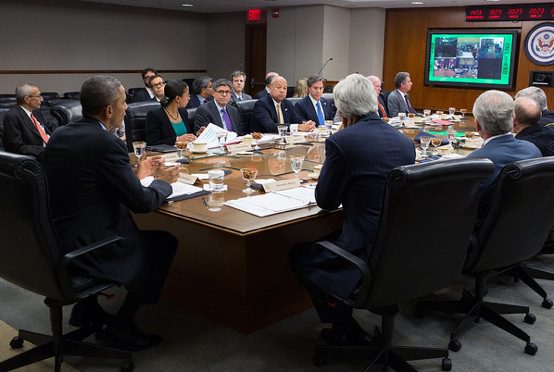Why Threat Inflation Flourishes

Micah Zenko sees a lack of accountability as one reason for the flourishing of threat inflation:
I have thought a great deal about why senior officials so routinely engage in threat inflation that is so starkly at odds with reality. I have no good answer, because it is impossible to read minds or understand the micro motivations of such officials. However, the practical reason is simple: They are rarely confronted nor are they held accountable by their peers, congressional members, or the media for continually making such erroneous assertions.
Our foreign policy discourse and political culture create perverse incentives that encourage officials and politicians to overstate foreign threats. Politicians and policymakers are often praised for showing prescience about far-off dangers, which gives them the incentive to portray virtually every threat as an extremely menacing one that must be countered early on. No matter how ludicrous a politician’s fear-mongering becomes, he will be treated respectfully as a “responsible” person on foreign policy and national security. No matter how many times an official makes what should be discrediting statements about foreign threats, he will be considered “serious” because he is blowing foreign threats out of proportion. Threat inflation absurdly doesn’t undermine an official’s credibility, but can even serve to enhance it.
Someone that offers a much more accurate assessment of the same threat will be dismissed for being “naive” about the danger. So it’s not just there is no accountability for making laughably false and exaggerated claims. The incentives in our foreign policy debates are the reverse of what they should be. Politicians and officials are penalized for accuracy and rewarded for exaggeration and alarmism, and so they keep providing more of the latter and less of the former.
Another reason for this behavior is that officials are much more likely to be condemned for failing to recognize the full extent of a threat, however minor it may actually be, than they are to be faulted for having grossly exaggerated a minor threat into an “imminent” or even “existential” one. That is, there is a sort of “accountability,” but it is one that reinforces the tendency to exaggerate threats and discourages people from keeping foreign threats in perspective.
Meanwhile, there is bound to be more media coverage of an official issuing dire warnings and making unfounded-but-alarming claims about an “imminent” threat. It catches our attention when an official intones that this is the “most dangerous world” he has ever seen. If an official were to make the much more accurate statement that the U.S. has not been so secure in decades, he would go unnoticed. A more genuinely responsible official explaining how manageable and small a threat is doesn’t make for splashy headlines, nor does it offer a ready-made video clip with which news outlets can terrify their audiences and thereby keep their attention.
Threat inflators in and around government also trade on the public’s ignorance of relevant details and the common, frequently wrong assumption that “they must know things we don’t.” So when a government official or someone in elected office makes a brazenly untrue statement about the nature and scale of a foreign threat, his statement is treated with deference because of information that many people suppose that he has that the public doesn’t have. More often than not, however, the official is indulging in rhetorical excess and wouldn’t be able to back up his statement if he were forced to provide evidence. Sometimes the rhetorical excess is intended to push through a dubious administration policy. Sometimes it is used to convey how “seriously” the official is taking the threat: the more outlandish the exaggeration, the more “serious” the official is perceived to be. And at other times it is used preemptively to ward off attacks from even more hawkish critics that the official neglected to pay attention to the threat. Once again, the perverse nature of our debates makes it seem more appealing and politically smarter to speak falsehoods and be thought an overzealous hawk than to offer an accurate and non-alarmist opinion and be considered “unserious.”
Comments